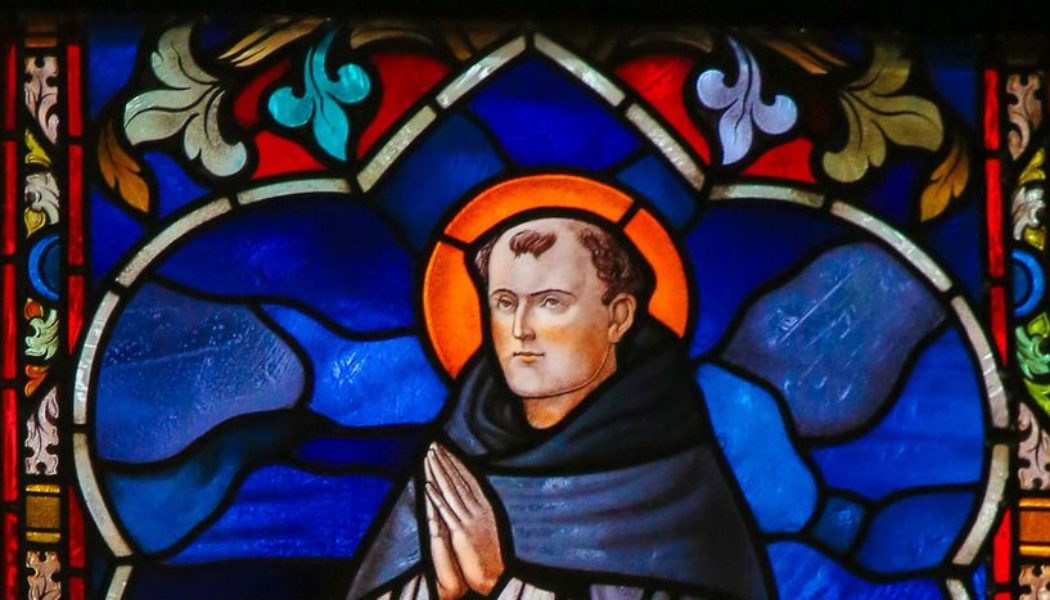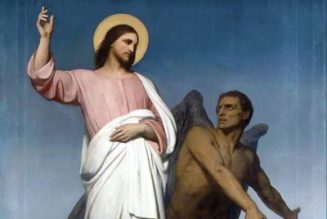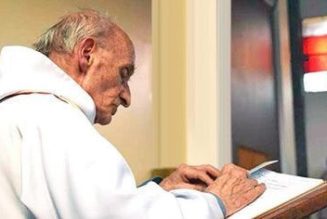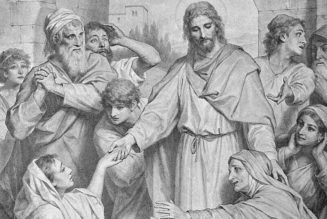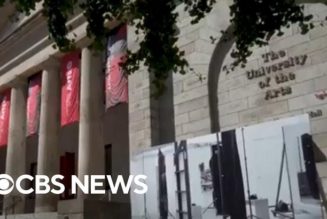/cloudfront-us-east-1.images.arcpublishing.com/dmn/63KW4IN3UVGCBBVEIVP5J4UDTA.jpg)
Seven hundred and fifty years ago Thursday (March 7), St. Thomas Aquinas died, having written some 8 million words in two decades of intensive work, including his masterpiece, the Summa Theologiae. He was only 49.
His admirers over the ages include many in North America. The Southern novelist Flannery O’Connor, memorable for her gritty realism, famously read a passage of Aquinas’s Summa every night, and the Rev. Martin Luther King Jr., whose vision inspired a nation, drew from his thought while in prison.
Aquinas, too, was incarcerated. His parents objected to their teenage son’s religious vocation and locked him in a tower. Aquinas’ older brothers thought they could undermine his resolve by tempting him with a prostitute, but Aquinas pulled a hot poker from the fire and chased her away.
O’Connor remarked, “St. Thomas doubtless knew his own nature and knew that he had to get rid of her with a poker or she would overcome him. I am not only for St. Thomas here but am in accord with his use of the poker.”
What’s with the poker? For Aquinas, we are neither angels nor beasts, neither sparks of pure reason nor bundles of irrational drives. Instead we are hybrid creatures, forged and fashioned into a unity that bridges two orders: on one hand, the order of physical causality and biological processes, and on the other, the order of truth and goodness. As a result, our very flesh is touched by our rationality and our rationality is touched by our flesh.
When we today reduce ourselves to biological processes and drives alone (or as my students like to say, “meat suits”), we neglect the power of reason to know the truth of things, including the ability to do science, and to will the good, including the ability to treat others with the respect they deserve.
Love, for example, is not just pheromones and biological drives; it involves genuine freedom and choice even in the face of powerful animal inclinations. Love is an expression of the same rational power that enables us to transcend our environmental niches in order to uncover the many truths of modern natural science.
Similarly, when we today wish to reduce ourselves to reason alone, neglecting the body, we rob the body of its natural meaning for us. For example, the fact that our biology enables us to become mothers and fathers naturally carries deep personal significance, as every new mother and father soon discovers.
Love, then, is not faced with the alternative of capitulating to biology or creating its own avenues of expression and realization; it can instead freely choose to realize those possibilities afforded by our natural powers.
Thomas, then, sanely unites two poles of the person into one whole.
Thomas’ meditation on the unity of reason and the passions in the cardinal virtues leads to this surprising implication: Freedom is not the same as preference, whim or drive. Freedom is rather the ability to achieve the good that we understand will perfect our natures as animals endowed with reason.
Freedom, then, cannot be understood without reference to truth, namely the truth of human nature. Thomas’ hot poker was a choice for freedom and human dignity over enslavement and debasement.
It is precisely here that King appealed to Thomas in his historic “Letter from a Birmingham Jail.” For the law inscribed into human nature trumps any merely human law.
King wrote, “To put it in the terms of St. Thomas Aquinas, an unjust law is a human law that is not rooted in eternal and natural law. Any law that uplifts human personality is just. Any law that degrades human personality is unjust.”
Aquinas argued that human good rather than human power commands our ultimate allegiance and respect. Tyranny has no claim on us.
Eventually Aquinas’ parents relented, and the 19-year-old was free to pursue his calling. After a decade of study, he went on to spend 20 years as Europe’s most sought-after thinker, a counselor to popes and kings. He also wrote books, lots and lots of them, which are gifts to the ages.
For these works not only make for good bedtime reading; they also reward careful study, emboldening us in the task of being human.
Indeed, 7½ centuries after Thomas’ death, we might follow fellow Americans O’Connor and King to discover Aquinas’ hot poker: Our reason is firmly planted in our bodily existence, which affords a nature that guides our freedom to its fitting fulfillment.
Chad Engelland is professor of philosophy at the University of Dallas.
We welcome your thoughts in a letter to the editor. See the guidelines and submit your letter here. If you have problems with the form, you can submit via email at letters@dallasnews.com
